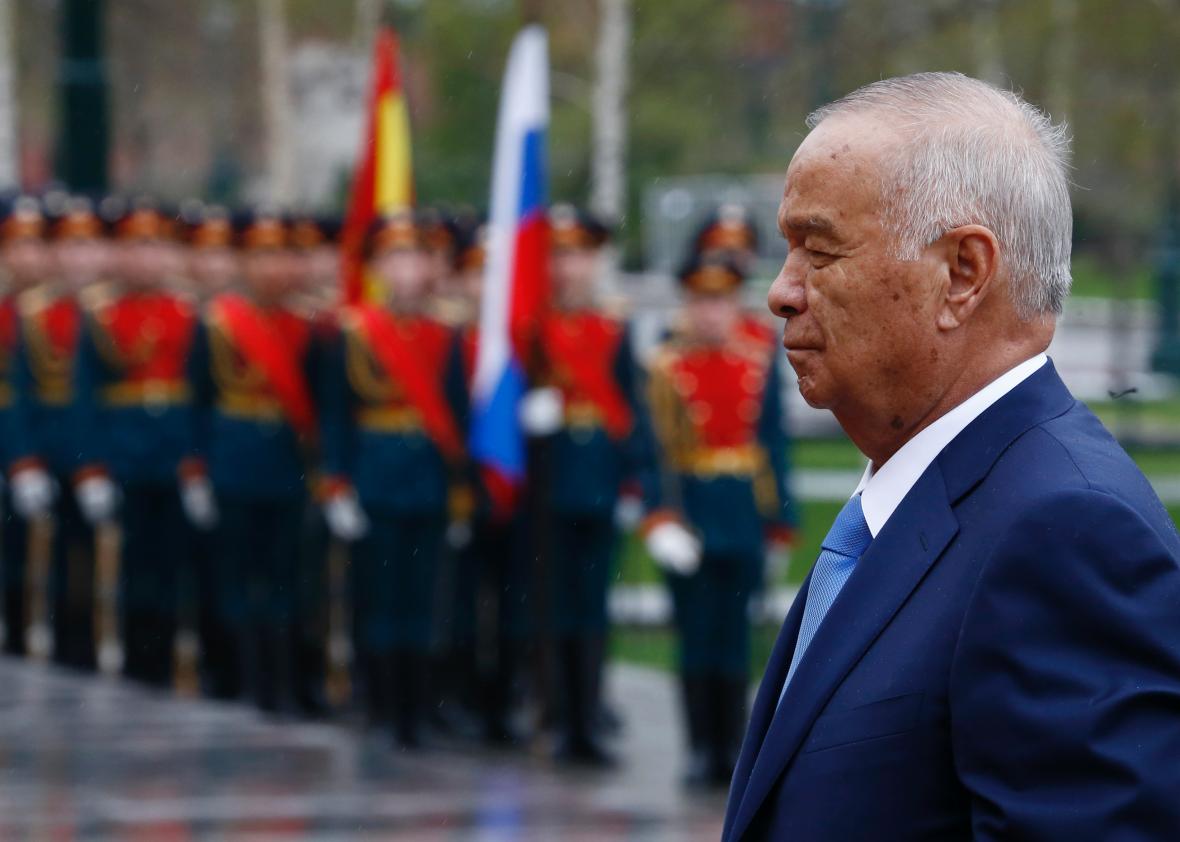Alwaght- Uzbekistan officially declared on Friday that the country lost its first and only president, Islam Karimov, who ushered in his nation’s independence following the collapse of the Soviet Union and ruled it for the next 27 years with an Iron fist.
Karimov was born in Samrkand and lived parts of his life in and out an orphanage. He studied economics and engineering and joined the Communist Party of the Soviet Union.
Late Karimov rose to higher positions in the party very quickly to become the first secretary of Uzbekistan in 1989.
After the collapse of the Soviet Union in 1991 he declared Uzbekistan an independent country and entered the first public presidential elections gaining a victory with a highly criticized result of 86% of the votes.
He took control in a period of renewed religion oriented movements in central Asia. After decades of state imposed atheism, Islamic groups were formed in Uzbekistan opposing the Liberal Party of Mr. Karimov.
In late 1991, Mr. Karimov traveled to the eastern city of Namangan, where he faced demonstrators, including religious leaders who had taken over a former Communist Party headquarters. Observers say Mr. Karimov took the confrontation as a personal affront.
The move drove him to an extensive purging of opposition groups and leaders despite his initial promise for concessions. The Uzbek president launched a push to marginalize both the country’s moderate, secular opposition as well as Islamist groups.
Although Uzbek Constitutions defined a five years presidency period, Karimov managed to extend his first turn until 2000 through a national referendum.
In 1999, Mr. Karimov survived an apparent assassination attempt when a string of car bombs were set off outside government buildings in Tashkent. He blamed radical religious groups and launched a ruthless crackdown.
He also won the second and the third presidential elections in 2000 and 2007, respectively, again through highly criticized vote takings where his rivals themselves offered implicit backing for Karimov during the vote, praising the country's "achievements" since independence.
Under Mr. Karimov, Uzbekistan experienced volatile and changing relations internationally. Located among three powerful players, Iran, Russia and China, the country was mostly isolated and passive in regional events keeping stable and limited friendly relations with all its neighbors.
On the global scene, on the other hand, Mr. Karimov embarked on some more challenging experiences when in the aftermaths of 9/11terrorist attacks on US, he allowed the US military to use a base in Karshi-Khanabad as a staging area for troops deploying to Afghanistan. K2, as the base was known, became a crucial hub for operations in landlocked Afghanistan.
The move was closely monitored by the Russian government that never favored stronger presence of Washington in his former territories.
In 2005 Uzbek security forces violently put down unrest in the town of Andijan. While the exact death toll was never clear, and the Uzbek government blamed the violence on Islamic militants, local people and human-rights groups contend that several hundred civilians were massacred.
The move was widely criticized accusing Karimov's government of over-exaggerating the Islamist threat to attract foreign aid and crack down on opposition. In response the president ordered the US troops to vacate the base.
Mr. Karimov was one of last strongmen of Central Asian who made the transition from Communist apparatchik to national leader after the dissolution of the Soviet Union.
Islam Abdulganiyevich Krimov finally died of a fatal stroke. His death was unofficially known for some days and the government made the news official on Friday, saying he will be buried in Samarkand observing Islamic tradition.
The country’s constitution calls for the chair of the upper house of parliament to preside over a possible three months transition period, though Karimov's death raises questions about the stability of a country for so long dominated by one man and who will succeed him.
Karimov’s first daughter, Gulnara, was considered a potential successor for years but was put under house arrest in 2014, blaming her mother, Tatyana, and younger sister, Lola, for conspiring against her.
Lola, current Uzbekistan's ambassador to UNESCO, the first to officially confirm the stroke news on her Instagram page, may be a potential successor but many believe the main power game will be between the Prime Minister Shavkat Mirziyoyev and Deputy Prime Minister Rustam Azimov.



























